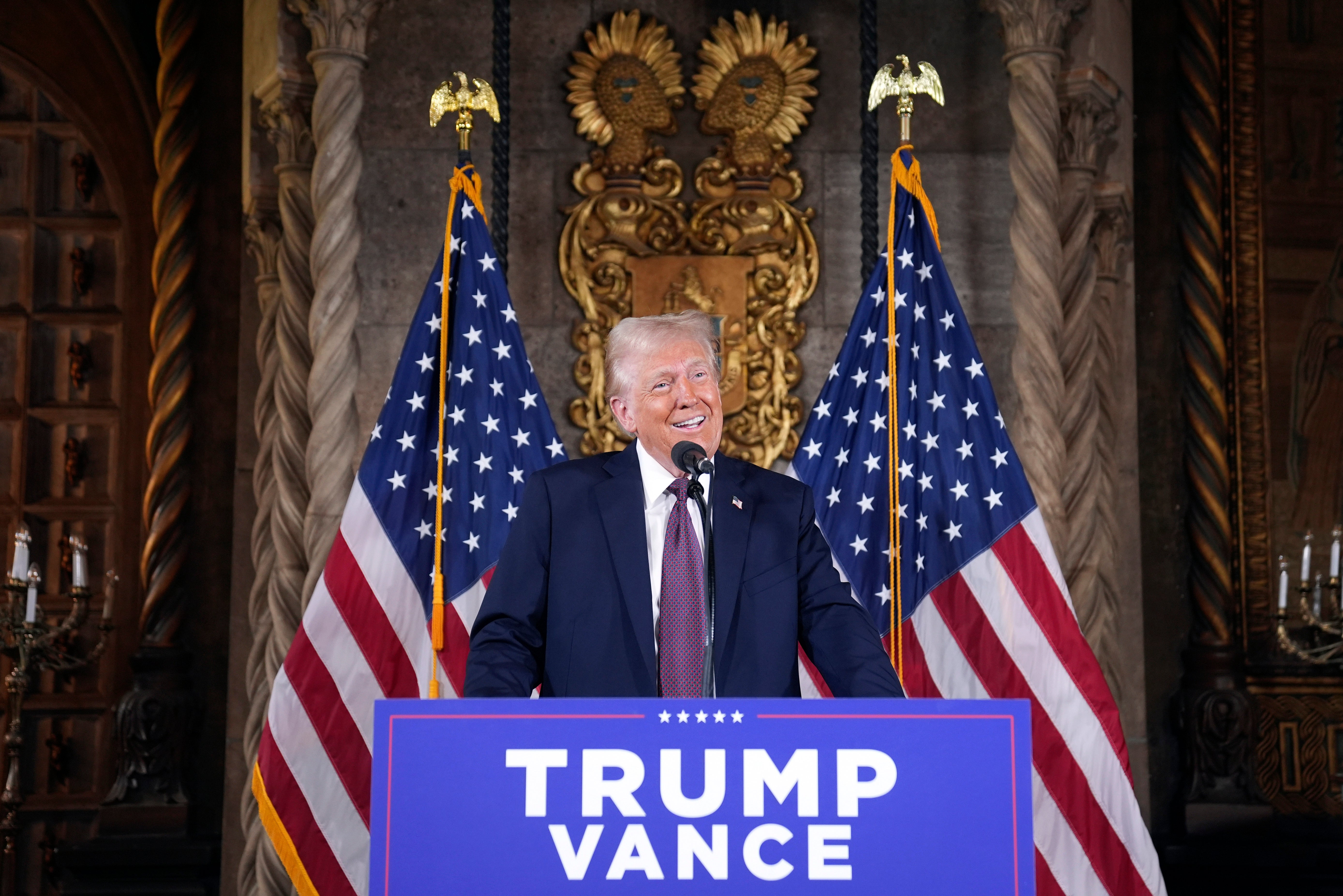Trump to declare national economic emergency in order to push through tariffs, report says
President-elect has threatened nations including Canada, Mexico and China with steep duties on their products even before taking office
Donald Trump is considering declaring a national economic emergency in order to create the legal grounds for introducing his program of steep tariffs against rival nations, according to CNN.
Even before taking office, the president-elect has threatened tariffs of as much as 10 percent on global imports and 60 percent on Chinese goods, plus a 25 percent import surcharge on Canadian and Mexican products.
Such duties are intended to provide a boost to American manufacturing but experts have warned that, in practice, they could backfire by upending trade flows, raise costs and invite harmful retaliatory measures.
Declaring an emergency would allow Trump to use the International Economic Emergency Powers Act (IEEPA), which empowers a commander-in-chief to seize control of the management of imports in a time of crisis, although what basis he would have for doing so right now remains to be seen.
During his latest freewheeling press conference at Mar-a-Lago on Tuesday, the president-elect contradicted much of his apocalyptic campaign rhetoric by unexpectedly admitting that the US economy is in rude health, despite the current struggle with inflation.
“Over the next four years the United States is going to take off like a rocket ship,” he predicted.
“But really it’s already doing it.”
Trump is keen on weaponizing the IEEPA, an insider told CNN, because it grants a president sweeping powers over the implementation of tariffs without strict requirements demanding that they justify the steps taken on national security grounds.

While the plan is reportedly not yet set in stone and remains the subject of “robust discussion” behind the scenes as the president-elect’s advisers examine alternative legal avenues, a source told the network: “Nothing is off the table.”
During his first term in the White House in 2019, Trump used the IEEPA as a means of threatening Mexico with a 5 percent tariff on imports that would rise to 25 percent if it failed to address the flow of illegal immigration from the north of the country across the United States’s southern border.
A diplomatic row was averted when Mexican negotiators spent a week in Washington DC and agreed to reinstate an earlier “Remain in Mexico” immigration policy, the officials knowing Trump was serious because he had already declared a national emergency at the border three months earlier.
“I think the president has broad authority to impose tariffs for a variety of reasons, and there are a number of statutory bases to do so,” Kelly Ann Shaw, an attorney who served as Trump’s deputy assistant for international economic affairs in his first administration, told CNN.
“IEEPA is certainly one of them.”
Should Trump go ahead and declare a national economic emergency, he could then employ Section 338 of the Tariff Act of 1930, which empowers a president to impose “new or additional duties” against foreign countries believed to be discriminating against the commercial interests of the United States, targeting specific categories of export products by way of a penalty.
The former president might also make use of Section 301 of the Trade Act of 1974 to lash out at rival nations that displease him, as he did against China during his first term – a strategy that yielded decidedly mixed results.
However, imposing tariffs under that statute requires a government investigation to justify its use and is likely to prompt companies affected to lobby for exclusion from any levies introduced.
Join our commenting forum
Join thought-provoking conversations, follow other Independent readers and see their replies
Comments
Bookmark popover
Removed from bookmarks